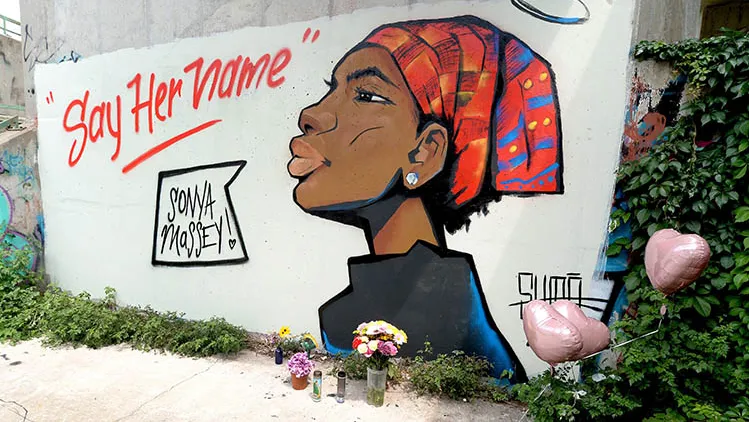Ferguson officer 'fighting for his life' after Michael Brown protest, police chief says
A police officer in Ferguson, Missouri, is "fighting for his life" after being assaulted during protests marking the 10th anniversary of the fatal shooting of Michael Brown, the city's police chief said.
The incident took place Friday night outside the Ferguson Police Department after a demonstration commemorating Brown's death turned destructive, according to police Chief Troy Doyle. Officer Travis Brown and other officers began attempting to make arrests in response to protestors damaging a fence outside a police station, Doyle said.
A protester charged Officer Brown when he attempted to make an arrest, causing him to fall and hit his head and leaving him with a "severe brain injury," Doyle added. Protesters hurt two additional officers, leaving one with an ankle injury and another with abrasions.
Authorities said the department has completely reformed since Michael Brown’s killing in 2014 and the assault on officers Friday night was a senseless act of rioting.
"This police department since 2014 has been a punching bag for this community," Doyle said at a news conference on Saturday. "I don't know why the officers here, who weren't even here in 2014, have to continue to suffer through this. It doesn’t make any sense."
The St. Louis County Prosecuting Attorney’s Office has charged Elijah Gantt, 28, with first-degree assault, resisting arrest, property damage, and two counts of fourth-degree assault. Four others were charged in addition to Gantt, with charges ranging from property damage, resisting arrest, and third-degree assault.
St. Louis County Prosecuting Attorney Wesley Bell, who also spoke at the news conference, noted the assault was a new low for the community.
"The toughest thing that I've had to do is talk and console with the mother who doesn’t know if her child is going to make it," Bell said.
Stories of justice and action across America. Sign up for USA TODAY's This is America newsletter.

Police chief on Officer Brown: 'Inspired to do the right thing'
Officer Brown has served the Ferguson Police Department since Jan. 2, according to Doyle. The police chief said Brown was the kind of officer the community wanted on the force.
“All police ain't bad," Doyle said. "Officer Brown got into this job because he was inspired to do the right thing. He wanted to be a part of the change, he wanted to make an impact in our community, and what happens? He gets assaulted.”
Brown came to the Ferguson department from the nearby St. Louis County Police Department, Doyle said.
He served the St. Louis department from August 2012 to October 2023, according to Sgt. Tracy Panus, a public information officer for the St. Louis agency. Brown worked as a patrol officer and as a tactical operations officer.
“During his time at St. Louis County, Travis made a positive impact on our community and made many friends throughout the Department,” Panus said.
Don Van, president of the Fraternal Order of Police Lodge 15 that oversees the Ferguson area, said Brown remained hospitalized and unconscious.
Sonya Massey's death:How race, police and mental health collided in America's heartland
How has Ferguson changed since 2014?
The protests Friday night were over the police killing of Michael Brown in 2014. Former Ferguson Police Officer Darren Wilson's killing of the unarmed Black teenager propelled the "Black Lives Matter" outcry into a national movement and, though he was never charged, public outcry over the killing and a federal court order led to a complete overhaul of the department.
The Ferguson demonstration also took place amid renewed outcry for police reform following the killing of Sonya Massey in nearby Springfield, Illinois. The 36-year-old unarmed Black woman was killed in her kitchen by a sheriff’s deputy after calling 911 for help.
Doyle touted his department's changes, and said: "This is a brand-new department."
Ferguson police, which had just a handful of Black officers in 2014, is now over 50% Black and 23% female, said Doyle, who is also Black. The department also began using body-worn cameras, mandated implicit bias training, crisis intervention training and even changed its uniforms which some people saw as upsetting reminders of traumatic experiences.
Only 1% of over 30,000 calls for police last year led to the use of force, Doyle said in a post on X, formerly Twitter, touting how the department has changed. Over 90% of officers joined the department after 2014.
Disclaimer: The copyright of this article belongs to the original author. Reposting this article is solely for the purpose of information dissemination and does not constitute any investment advice. If there is any infringement, please contact us immediately. We will make corrections or deletions as necessary. Thank you.




